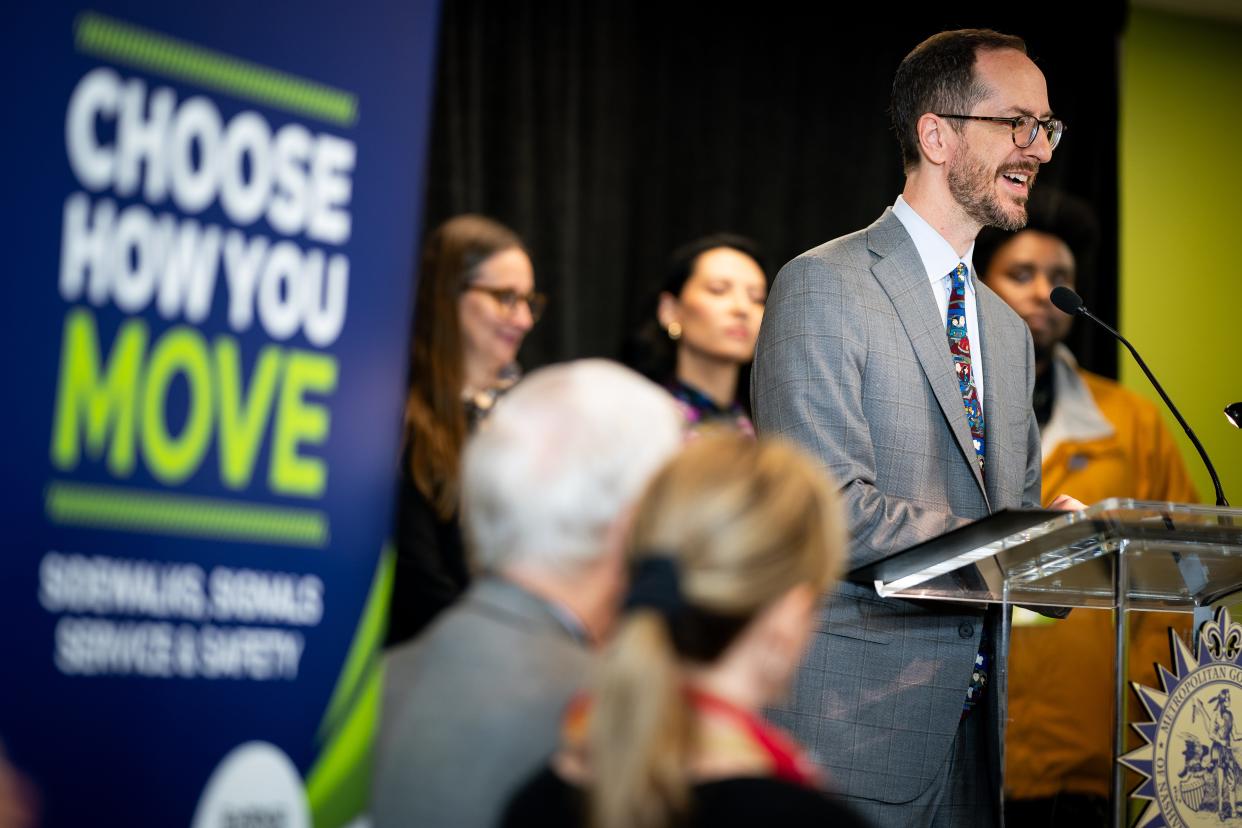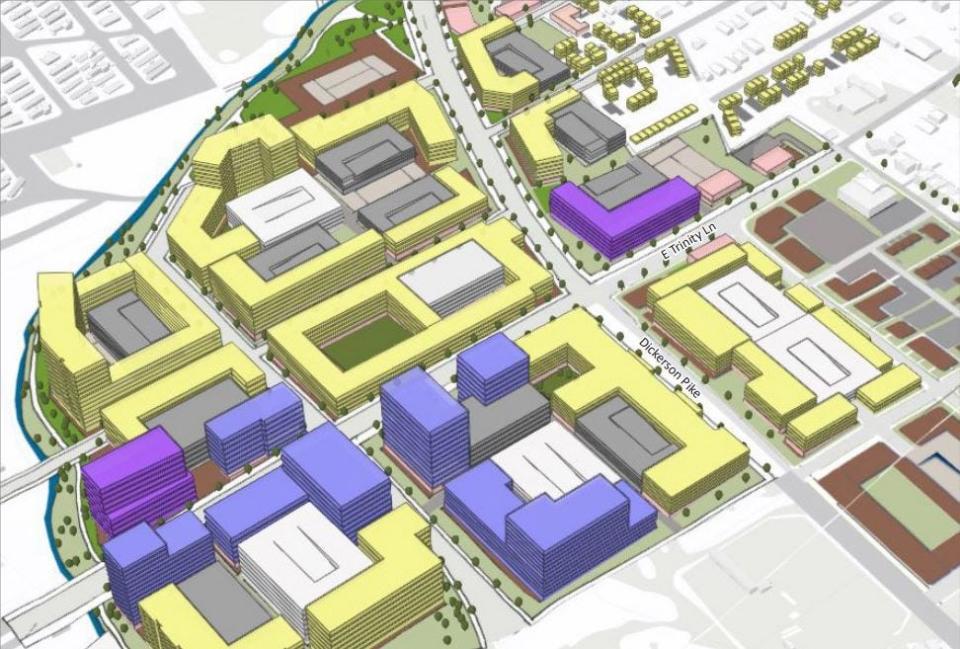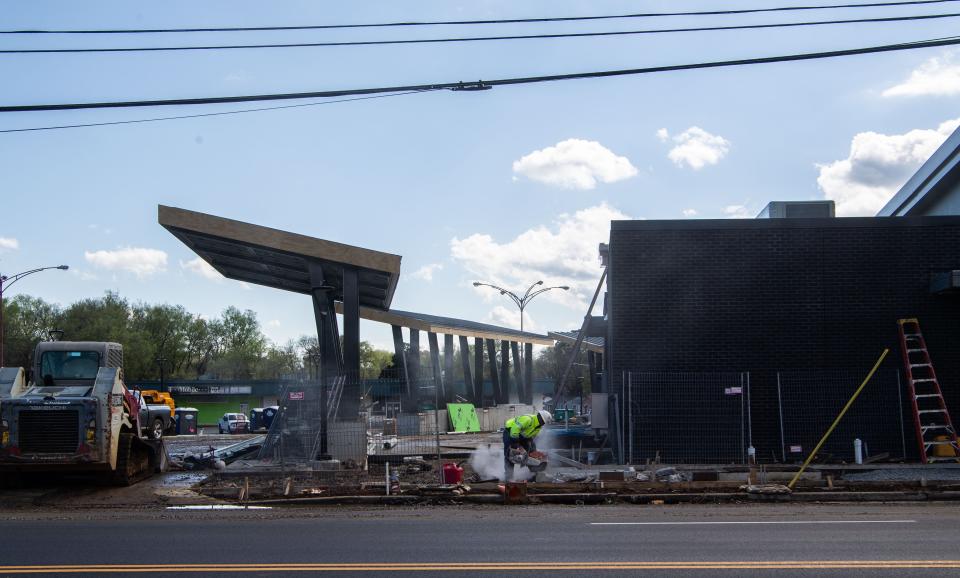Nashville's $3.1B transit plan includes buying land near centers for housing, parks

Nashville Mayor Freddie O'Connell's vision for better transit in Nashville includes purchasing land for housing or other community benefits near some of the dozen new transit centers proposed in the "Choose How You Move" plan.
O'Connell announced the details of the $3.1 billion transit improvement program Friday. Revenue from a new half-cent sales tax bump would provide funding for the program's multitude of projects, including 86 miles of sidewalk, upgrades, nearly 600 traffic signals and the expansion and improvement of the WeGo bus system.
Should Davidson County voters approve the sales tax increase on Nov. 5, Nashvillians would also see the construction of 12 neighborhood transit centers by 2032, according to city documents.
Beyond creating "mobility hubs" with amenities for bus users, pedestrians, cyclists and others, the transit centers would open up possibilities for Metro to secure about 26 acres of adjacent land and partner with developers to provide housing or other community spaces with easy access to the bus system. That's a scenario favored by federal housing grants, as housing and transit are typically a household's largest expenses.
"Living close to transit allows households to save on the cost of transportation," O'Connell said Friday. "Already today, Nashville households close to transit lines spend $200 less per year. So when we talk about building transit centers and park and ride facilities, we're not just talking about transportation infrastructure, we're talking about affordable housing, too."
Pairing transit centers and housing
Nashville already has three transit centers, including the Elizabeth Duff Transit Center downtown, a small center near Hillsboro High School and the soon-to-open Dr. Ernest Rip Patton, Jr. North Nashville Transit Center, which itself is located near affordable housing complexes.
The centers provide an array of amenities, including restrooms, climate-controlled waiting areas, ticket vending machines, outdoor space, Wi-Fi and real-time arrival updates. Pedestrian infrastructure is also strengthened in areas surrounding these centers.
"Choose How You Move" includes $130 million to construct 12 new transit centers of varying sizes, including centers in the following areas:
SoBro
East Bank
Antioch
West Nashville
Madison
Nolensville
Donelson
TSU
Skyline
Vanderbilt Center
Bellevue
Airport Station upgrades
In most cases, specific locations have yet to be selected, though public land is available for centers envisioned on the East Bank, South Broadway and at the Southeast Community Center in Antioch where O'Connell delivered his remarks Friday.
"The others we think we have rough locations for, but a lot of it is going to depend on what can we get in that that corridor design and where would the station be," he said.

The transit improvement program estimates $33.6 million could be used for 10 additional land acquisitions to support "transit-connected community needs such as thoughtfully designed affordable housing."
The plan would seek to purchase land near the following transit centers:
SoBro
East Bank
Antioch
West Nashville
TSU
Skyline
Madison
Donelson
Nolensville
Bellevue
How it could work
Federal rules allow transit agencies to partner with developers to deliver community amenities on agency-owned land that is not being used for transit purposes.
Many details would still need to be worked out, and land acquisition and planning would happen on a case-by-case basis.

Metro Council may need to take action to allow WeGo to purchase and condemn land. Zoning changes that could make it easier to develop multifamily housing on land near transit centers could support both the private housing market and affordable housing developments, according to Greg Claxton, manager of advanced planning and research at Metro's planning department.
"Joint developments, in partnership with private and non-profit developers, can make investments in housing, parks and other community spaces that are part of our commitment to Nashvillians who love to live here and want to stay here," the "Choose How You Move" plan states.
Completed joint developments and amenities could then be supported by Metro general funds "to keep these transit-oriented communities affordable and accessible," the document states. "These Metro-funded programs could also include those which help businesses stay in operation even during times of construction and initiatives to sponsor public art in and around the transit centers."
This article originally appeared on Nashville Tennessean: Nashville mayor's transit plan includes land buys for housing, parks
